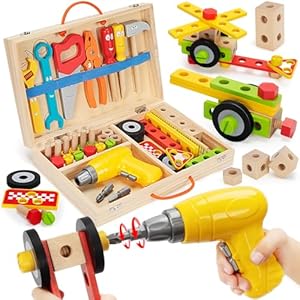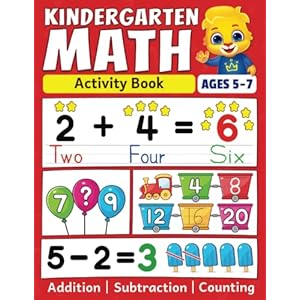
Somebody as soon as informed me that you simply change the most as a person between the ages of 18 and 24. And searching again on these years, positive, I feel it is truthful to say our personalities do come extra into focus as we graduate highschool and head off into the world. For those who have been to ask me, although, I might say we endure the most growth as individuals in our 30s — a time when many people are both married or in dedicated relationships and beginning our households. (For the file, at the very least one study revealed by the American Psychological Affiliation factors that method, too.)
And we will all agree that progress is sweet, proper? It is type of the entire level: evolving and changing into higher as we gather the data that comes with life expertise. However, for these of us who’re married, what occurs while you notice you are rising whereas your companion is simply… not? You’ll suppose that rising as an individual would routinely make your relationship stronger, that the extra self-aware you grow to be, the extra your relationship will flourish. Solely while you’re actually coming into your personal and your companion is caught, it is exhausting to not marvel if maybe you’ve actually outgrown your relationship.
Consultants say it is extra widespread than we predict, and it would not at all times imply the tip. It does imply one thing has to shift. So, what do you do while you really feel such as you’re outgrowing your marriage — however you are not prepared to surrender on it? We requested therapists, relationship specialists, and sure, even divorce attorneys for his or her sincere recommendation. This is what they mentioned.
Why does this occur?
The fact is that identification shifts are inevitable. Over time, our ideas and emotions and beliefs will ebb and stream, influenced by every little thing from our family and friends to popular culture. For those who’re in a long-term relationship, you’ll nonetheless undergo these life transitions all the identical. Nonetheless, identification shifts will not be at all times simultaneous, and that’s the place issues can get muddled.
“It is utterly regular to really feel like your companion and even you could have grown into totally different variations of your self over time,” says licensed scientific social employee Alyssa Petersel, founding father of MyWellbeing. “Relationships, like people, evolve. We develop via life phases, profession modifications, household dynamics, grief, pleasure, and challenges. Stressors like parenting, monetary strain, sickness, or trauma can influence the tempo and depth of change, as effectively. Typically, what as soon as bonded us — shared objectives, routines, or roles — now not align as these elements shift.”
This misalignment can undoubtedly make you’re feeling such as you’re now not on the identical web page, which might additional exacerbate emotions of loneliness or stress.
“It is utterly regular to really feel like your companion and even you could have grown into totally different variations of your self over time. Relationships, like people, evolve.”
Explains Licensed Skilled Counselor Sarah Thompson, founding father of Sarah J. Thompson Therapy & Wellness, “It’s so widespread in long-term relationships: one particular person begins evolving — possibly via remedy, a brand new profession part, or simply deep private reflection — whereas the opposite appears to remain in the identical emotional or psychological area. This dynamic can carry up a variety of ache, frustration, and even guilt. The rising companion may really feel held again or lonely, whereas the ‘caught’ companion may really feel judged, deserted, or insecure in regards to the modifications taking place.”
Thompson factors out that this permits emotional distance to creep in and resentments to construct, “and abruptly, you’re talking totally different languages.”
The reality is that though progress usually begins as a person journey, it will possibly inadvertently grow to be an isolating one.
Are you able to develop in numerous instructions and nonetheless keep collectively?
Fortuitously, specialists say this uneven dynamic doesn’t essentially spell doom.
“This doesn’t should imply the tip. Relationships can survive and even thrive via these shifts, however it takes each individuals being keen to look truthfully at what’s taking place and determine easy methods to transfer ahead collectively,” says Thompson.
Renee Bauer, a divorce lawyer at Happen Even After Family Law, agrees that companions can transfer ahead collectively if each companions put within the work.
“In some circumstances, {couples} can develop collectively. They hit pause, get inquisitive about one another once more, and realign. However that solely works when each persons are keen to do the work,” she emphasizes. “When one particular person resists change as a result of it threatens their consolation zone, it breeds frustration, resentment, and loneliness. And people emotions, left unaddressed, are what actually unravel a wedding — not the change itself.”
Thompson additionally notes that it’s necessary to remember that progress doesn’t should look the identical for each of you. “Possibly one particular person is diving into self-discovery whereas the opposite is content material of their routine. What issues is whether or not you’ll be able to nonetheless discover shared that means, values, or emotional intimacy that retains you bonded. Small steps, like making an attempt a brand new exercise collectively or studying a e-book as a pair, may also help the ‘caught’ companion discover change at their very own tempo.”
How do you develop collectively after a disconnect like this?
You realize what they are saying: Communication is vital. “If one companion begins to develop and alter and the opposite doesn’t, preserving the dialog open and sincere may also help information each companions to remain related,” says Emma Hathorn, relationship professional at Seeking.com. “Sharing your expertise and inspiring your companion to specific their very own eliminates misunderstandings.”
Thompson says a useful part of communication on this state of affairs may be taking a look at it from a unique perspective.
“The important thing isn’t about who’s ‘proper’ or ‘unsuitable’ however whether or not you’ll be able to nonetheless meet one another with curiosity and compassion. As a substitute of framing it as, ‘You’re not rising,’ strive approaching it with, ‘I’ve been feeling some shifts in myself, and I’d love to know the way you’re experiencing issues,’” she suggests. “This retains blame out of the dialog and opens the door for actual connection.”
“Private progress can and may happen at each stage of our lives … It’s a pure, wholesome course of that needs to be embraced and in the end inspired, particularly by your companion.”
Pulling your companion into the dialog can facilitate progress for each of you. Says Thompson, “A query I really like is, ‘What do you suppose has modified about me currently?’ It provides your companion an opportunity to replicate and be a part of your journey, somewhat than feeling left behind.”
One other approach to pull your companion into the image extra is to rekindle connection via small, intentional actions. “Rebuild shared rituals: date nights, check-in conversations, and even cooking collectively. Be open about your need to reconnect. Typically, simply naming that you simply miss your companion can spark a significant second,” says Petersel.
When is it time to have the robust conversations?
After all, generally individuals actually do develop aside, and that’s OK too.
“Typically, regardless of your greatest efforts, the hole feels too extensive. In case your progress is persistently met with resistance or resentment, when you now not really feel emotionally protected or related, or in case your core values have essentially diverged, it may be time to reassess,” says Thompson.
And that’s robust! Nobody needs to really feel like they went into a wedding considering it might be endlessly, solely to name it quits. It occurs, although, and generally it’s merely the healthiest factor.
Reassures Thompson, “Strolling away doesn’t imply you failed; generally, it’s essentially the most loving alternative for each individuals. And when you’re feeling overwhelmed by the choice — not sure whether or not to remain and work on it or transfer on — that is precisely when a talented therapist may also help you type via the emotional muddle and discover readability.”
Bear in mind: Development isn’t the villain right here. In truth, progress is regular and good and needs to be celebrated. “Private progress can and may happen at each stage of our lives,” says Thompson. “It’s a pure, wholesome course of that needs to be embraced and in the end inspired, particularly by your companion.”
Petersel wholeheartedly agrees. “We will and may have fun that we’re studying and rising in distinctive methods,” she says.
So, whether or not you progress ahead collectively or individually, your progress is legitimate, and it may be the start of one thing much more aligned. Says Hathorn, “Navigating progress inside a relationship requires empathy, communication, and, at instances, a troublesome resolution. By addressing these considerations as they come up and remaining genuine in your self and your relationship, you’ll be able to create an area the place progress isn’t solely accepted however inspired.”
Trending Merchandise











